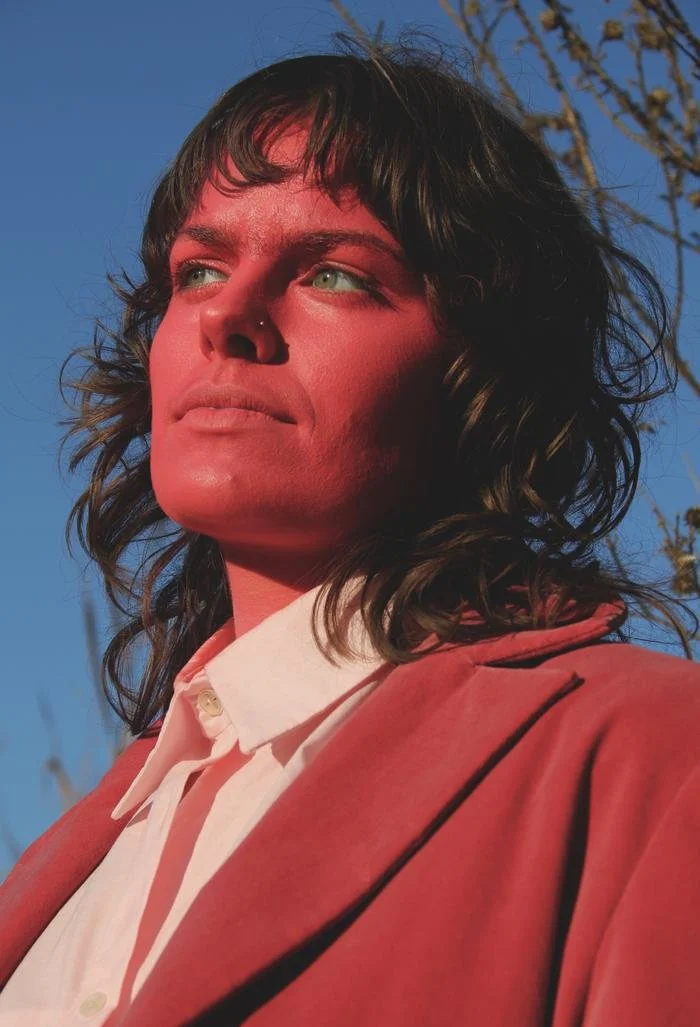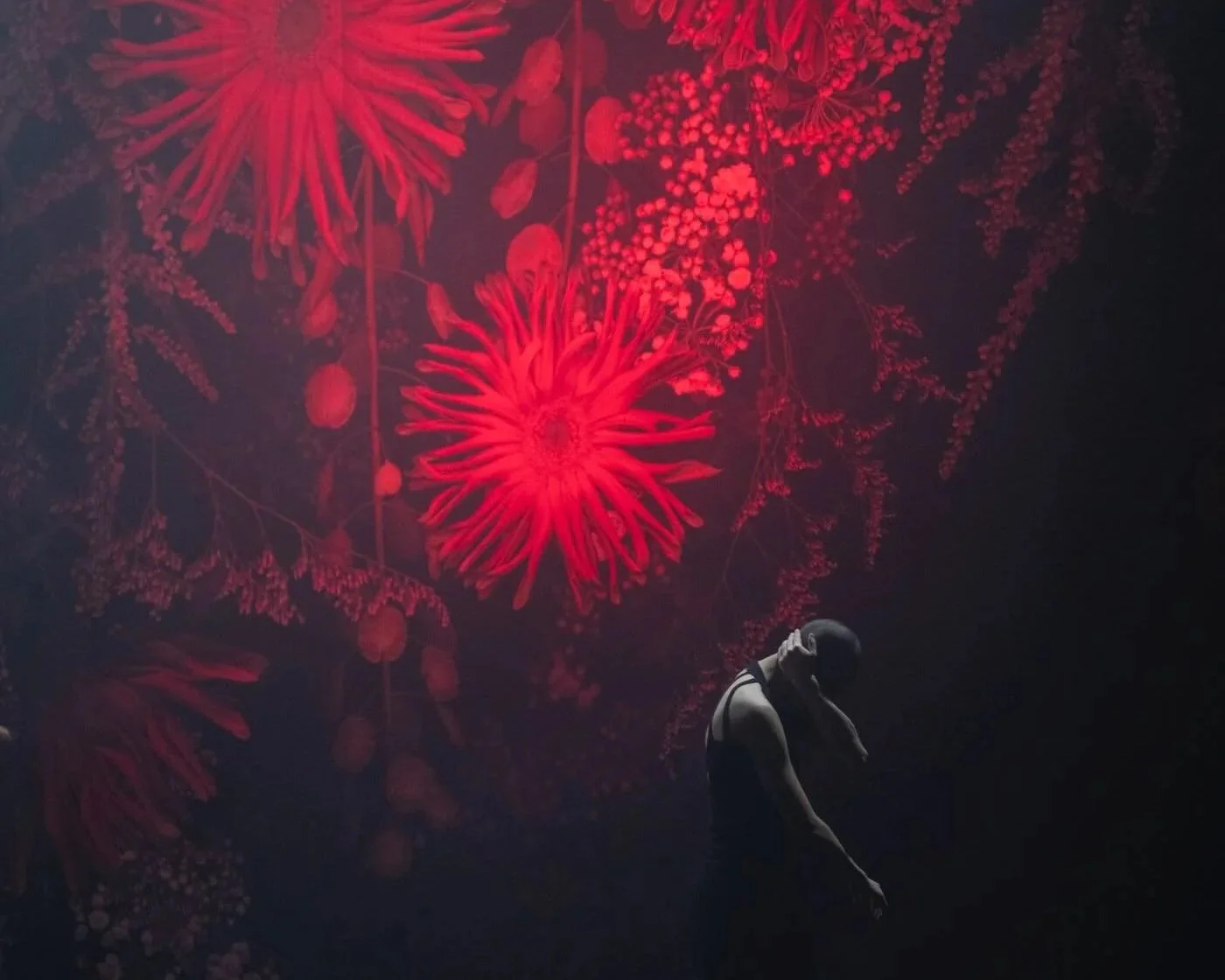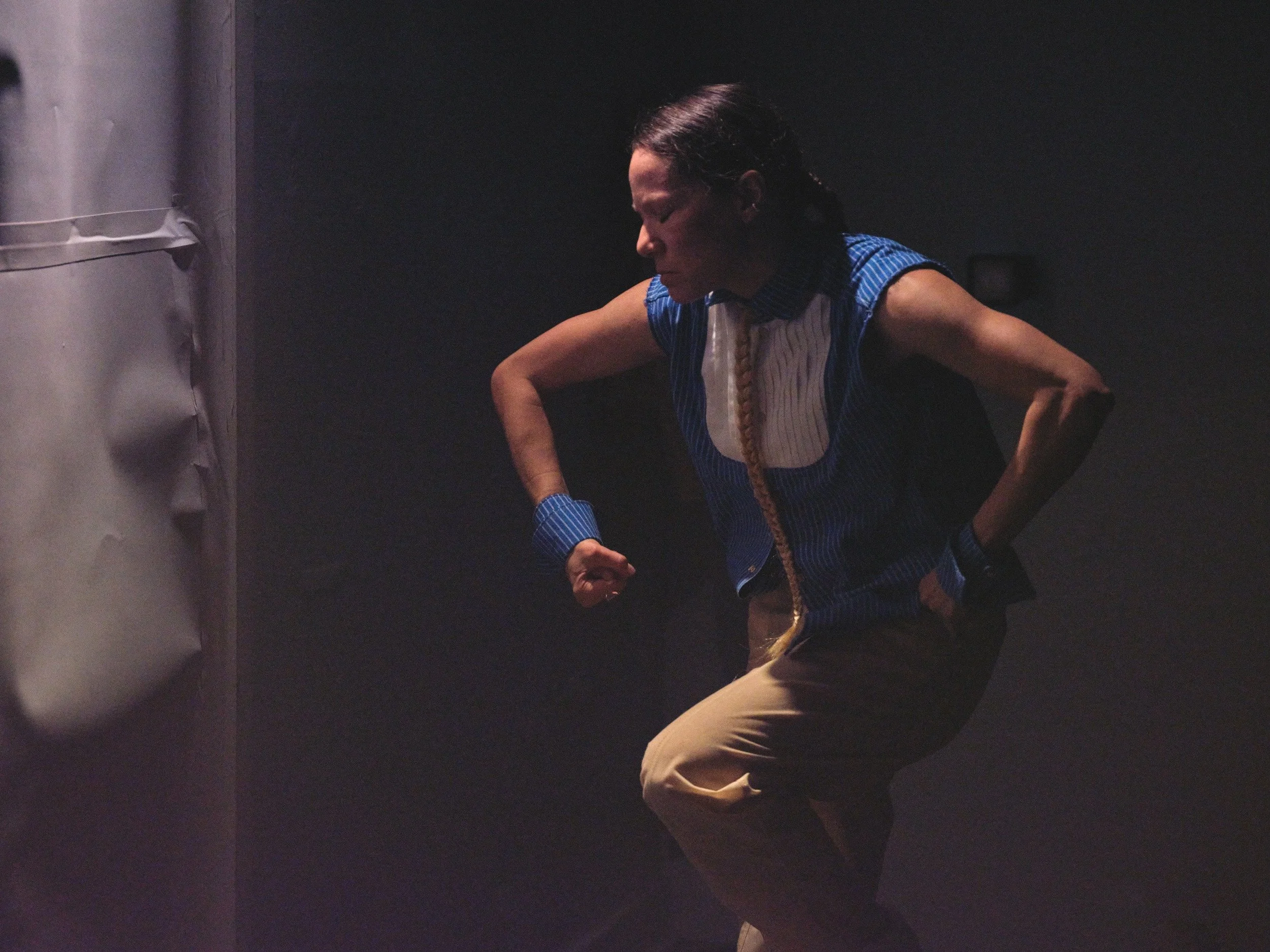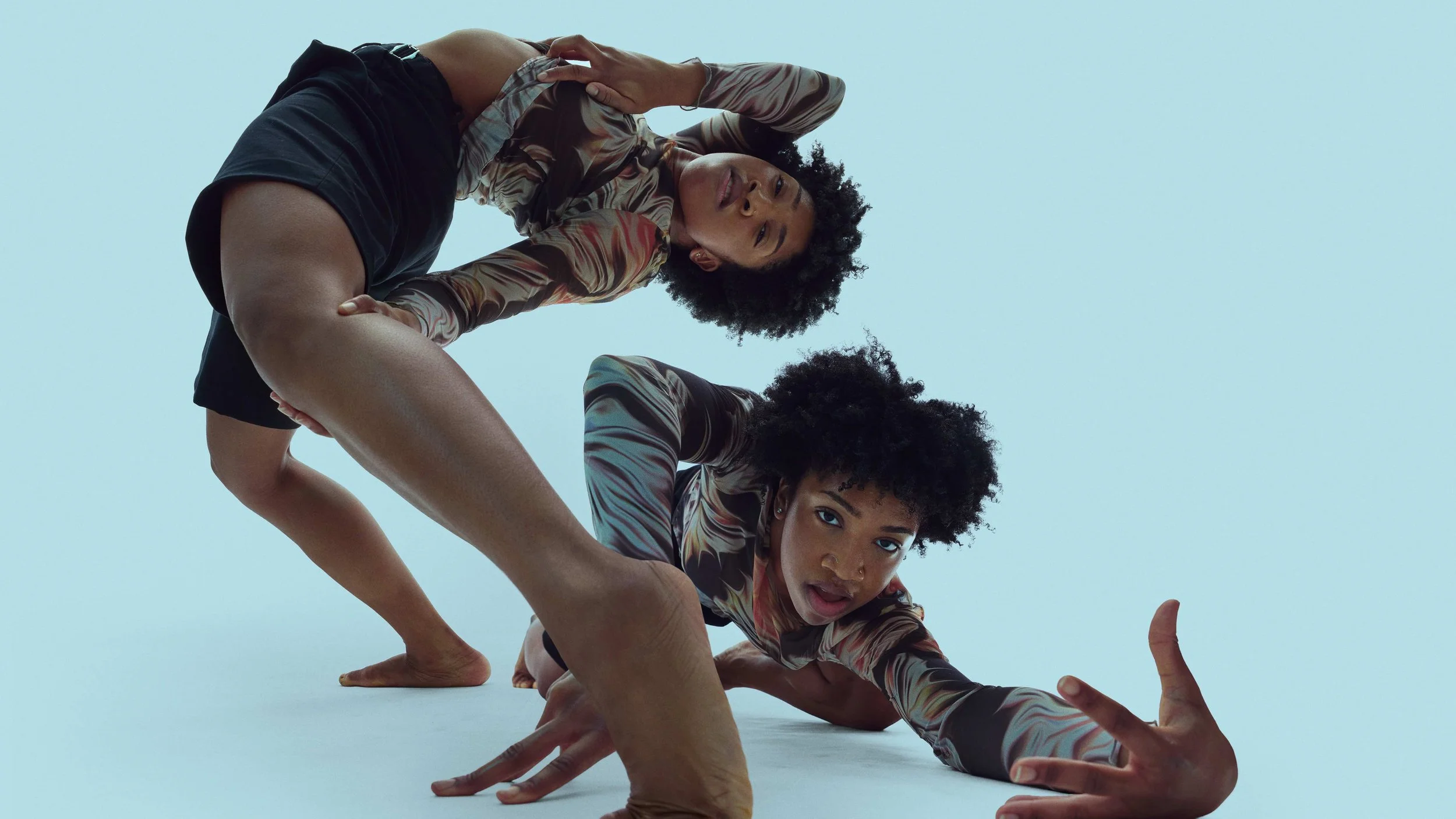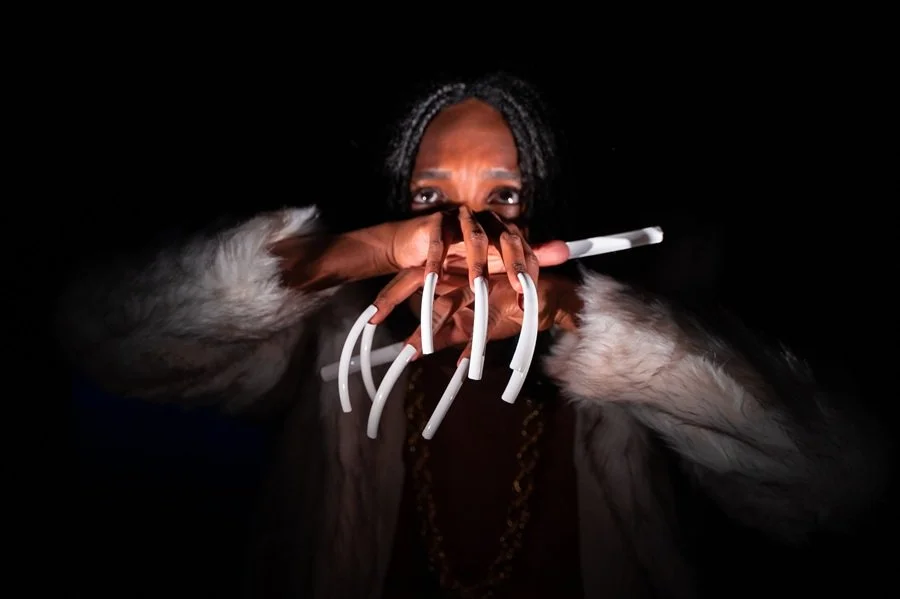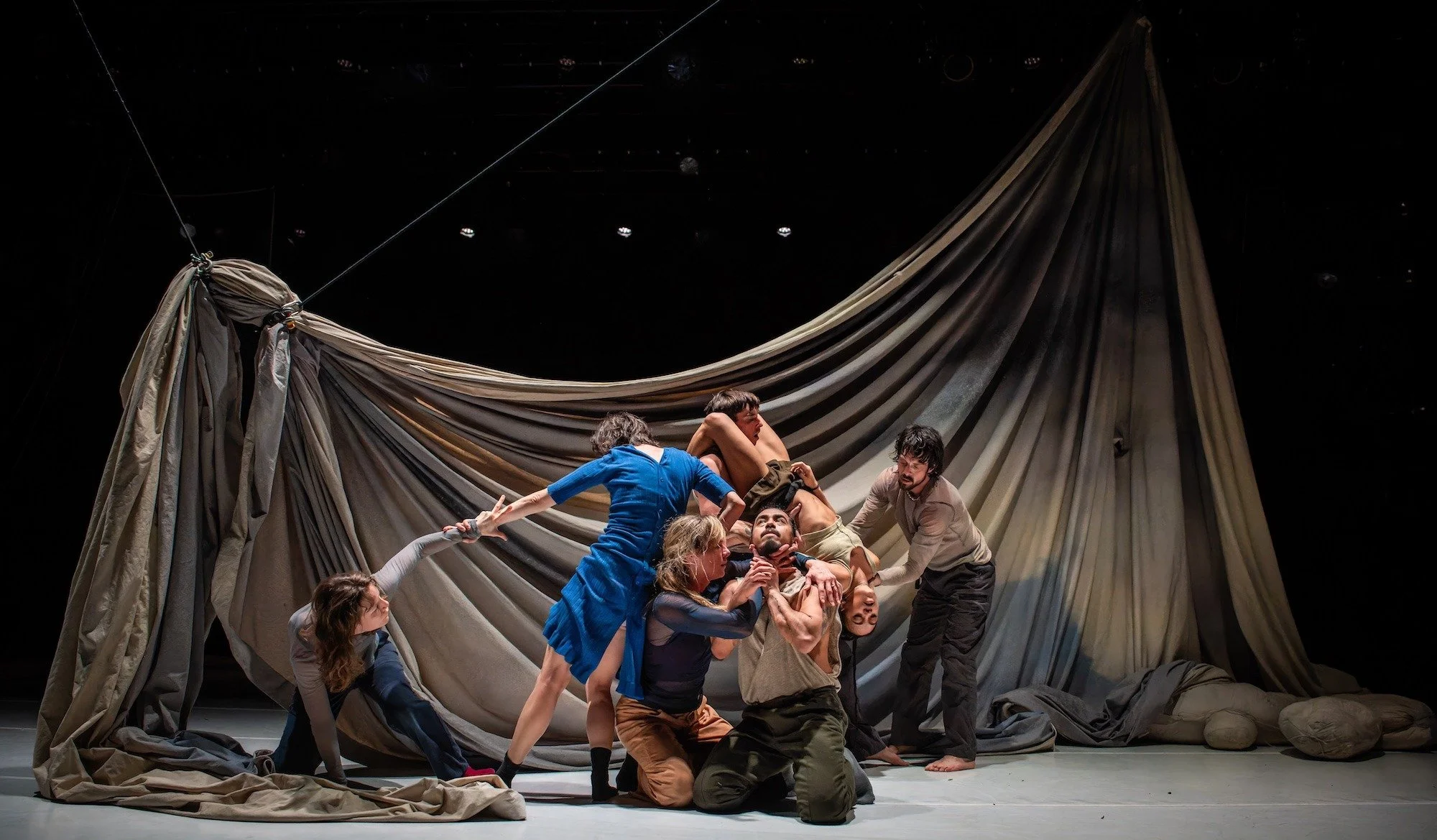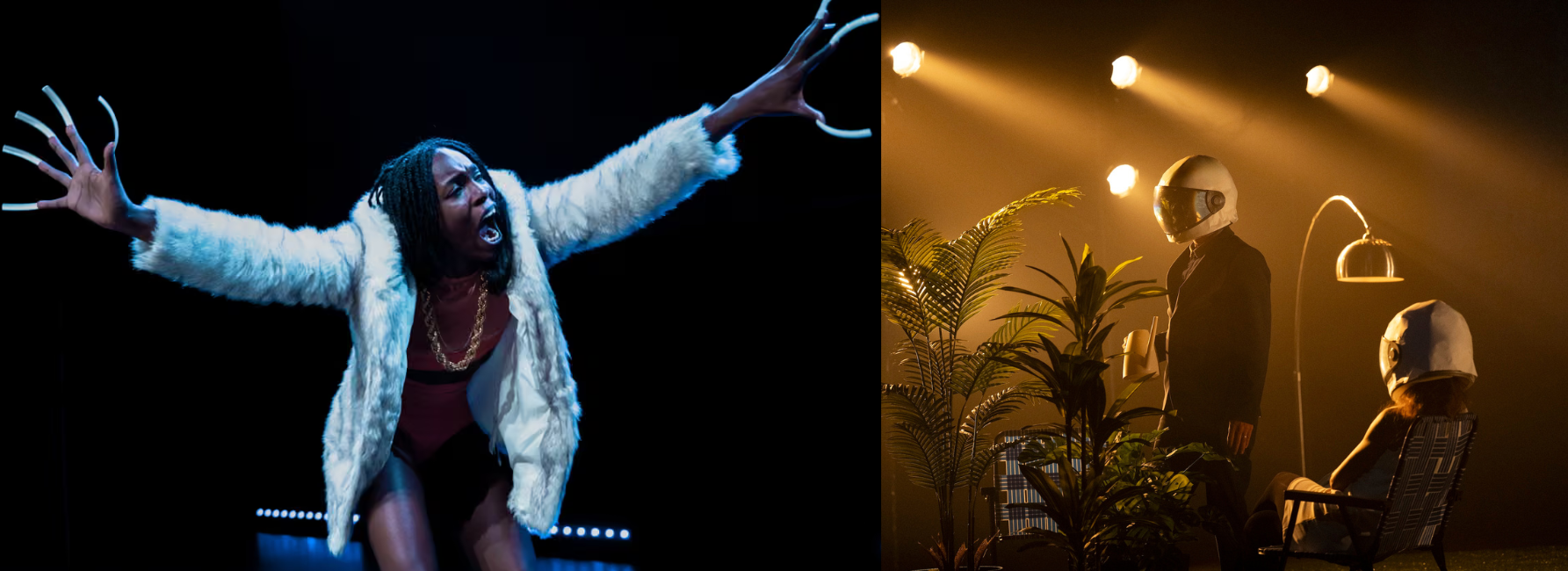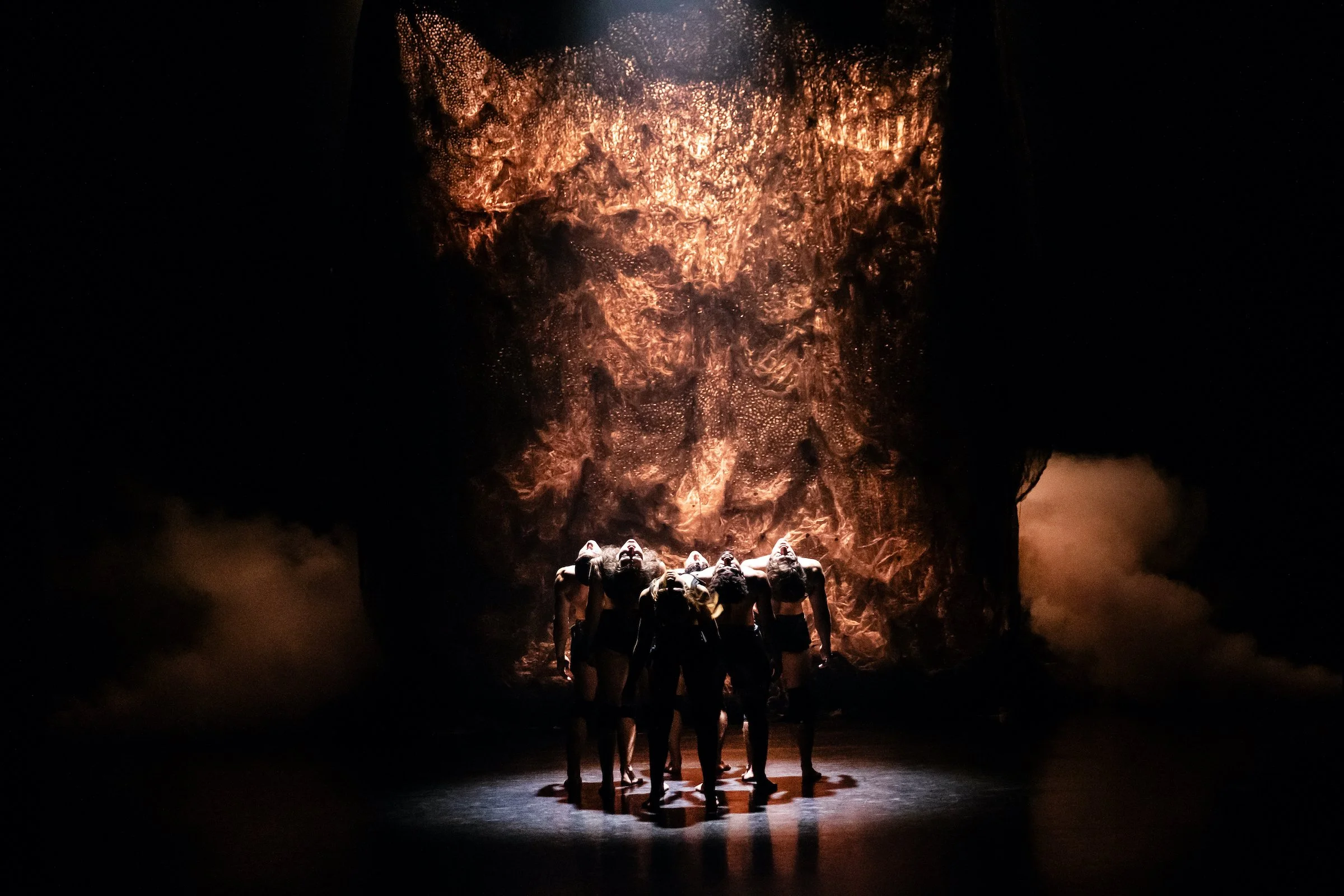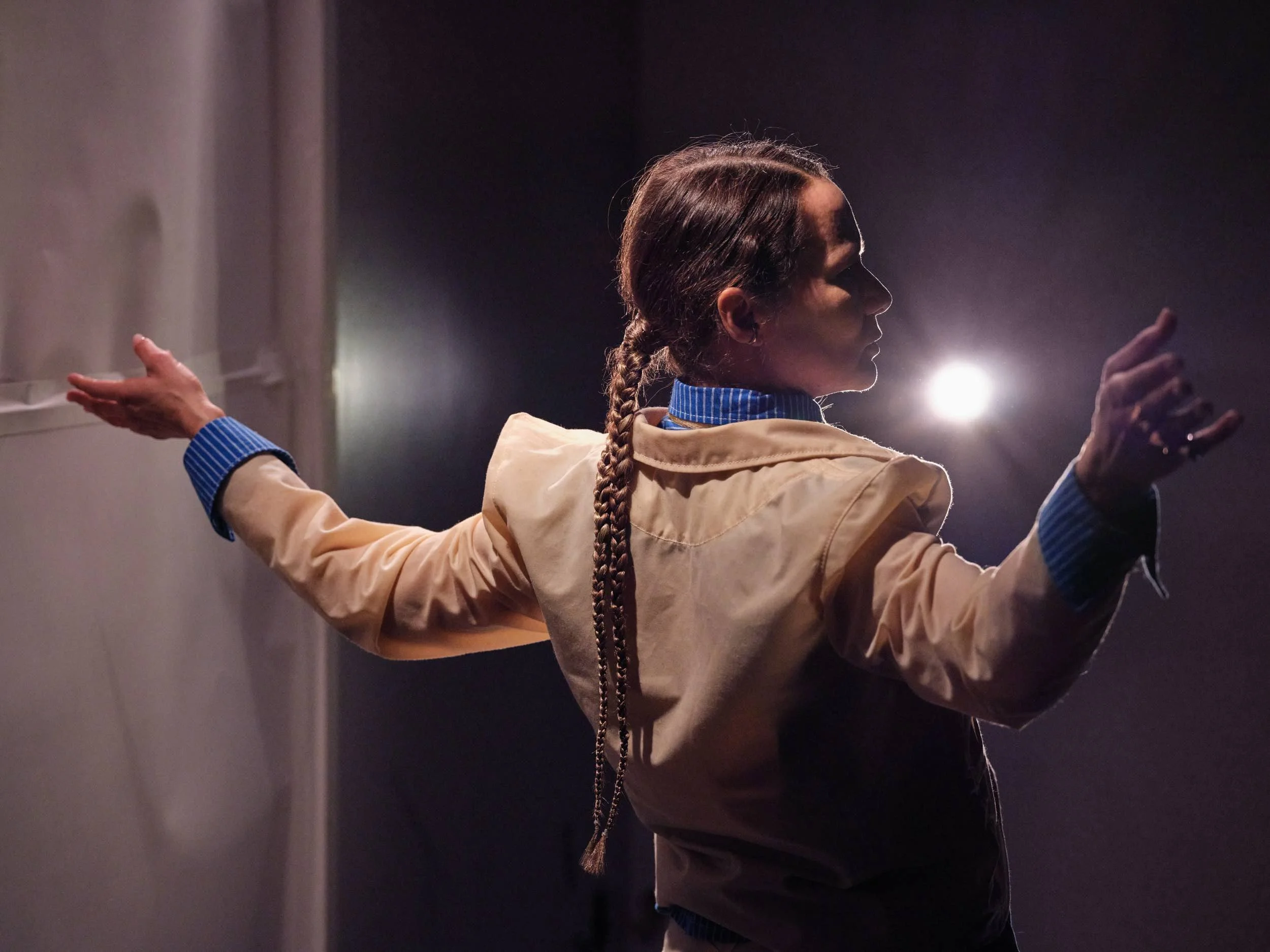With Returns, Nellie Gossen stitches together a 30-day performance around fashion labour, waste, and retail
As part of PuSh Festival at the Scotiabank Dance Centre, performers disassemble clothing items, sew them into ever-shifting sculptural pieces, and then return them to original forms
Nellie Gossen in Returns. Photos by Mariama Sow
AT THE SCOTIABANK Dance Centre, four artists painstakingly remove threads from retail fashion items, disassembling the clothing and then sewing it into new, ever-shifting sculptural forms. Microphones amplify the whispers of threads being snipped and needles passing through fabric.
Welcome to Returns, interdisciplinary artist Nellie Gossen’s 30-day performance that brings together fashion, handicraft, dance, and art installation, commenting on everything from labour issues to trend-hungry consumer waste along the way.
The timeline is no accident: it’s based on the retail world’s 30-day return policy.
It’s a system that Gossen, whose wide-ranging background includes stints in high-end fashion retail sales, knows well.
“I spent a lot of time witnessing these exchanges,” she tells Stir in a phone interview. “Returns were something I experienced a lot in retail. And being attuned to clothing and performance, I saw the performativity of what it means to be in a clothing store—the performing of wealth, and the performing in the role of sales.
“My original interest is and has always been to ask meaningful questions in the field of clothing and clothing-making, and to interrogate our relationship with consumer capitalism,” Gossen adds. “The 30-day format lends itself to deeply occupying and feeling these systems in a way that isn't really available in this fast-paced industry, to slow down and feel the body—and to actually feel, period.”
The idea for the Returns project traces back in part to Gossen’s degree in Fashion Design from Kunsthochschule Berlin Weißensee. For Gossen, the area of study always came from a place of artistic practice, incorporating performance and posing hard questions about the industry.
“As is the case with a lot of young folks interested in fashion, it’s a great idea—and then when one is put in the place of doing it professionally, you’re just confronted by the enormity of the labour practices, the working all night, the compromising of our own health and lives,” Gossen says. “It’s pretty frightening for a lot of people. I know a lot of folks who study fashion degrees and don’t go into the field.
“To study for a fashion degree is also to study capitalism in terms of the industrial revolution being linked to textile factories,” she adds.
In Returns, those ideas play out in a playfully subversive way. Gossen actually heads out to stores to purchase a variety of garments, then brings them to the studio to be disassembled.
“We take everything apart in a slow and gentle process of unpicking the pieces,” Gossen explains. “When they are unpicked, there’s an action of releasing them from their form.”
Nellie Gossen
Gossen then works alongside dance artist Erika Mitsuhashi, clothing artist Jaewoo Kang, and visual artist tone puorro to reconstruct the fabrics into new sculptural pieces—“more abstract and not attached to these gender identity markers,” as Gossen says.
Much of the group’s movement scores incorporate handsewing and working industrial sewing machines.
“We’re using our bodies as archives for this long lineage of folks, most often femme and female, who have spent so much of their lives doing textile labour,” Gossen says.
Perhaps most subversively, at the end of the 30-day period, the group reconstructs the garments back into their original forms and—yes—returns them to stores for a full refund.
“The returns: that is really the element that offers a bit of tension throughout,” Gossen admits. “Throughout the whole piece, it’s like, ‘Is it gonna happen?’ I am absolutely committed to returning the clothes in better than or the same condition that we got them in.
“We’re reconstructing the clothing well, and there are moments where if something is not perfect, I will hold it back,” she stresses. “It is really about testing our own limit to see how far we can live into this clothing.”
Though the work has had several iterations around the world since its debut in 2019, this Dance Centre and PuSh International Performing Arts Festival installation is the first time Gossen and her team have performed Returns in front of a live audience.
She invites viewers to join along in this long, slow, and often meditative journey, and come and go as they please.
“We’re really lucky to share a parallel photo exhibition throughout the Dance Centre, sharing all our images and documentation throughout the whole period so people can see this long trajectory of the clothing,” Gossen adds. That is, before that clothing returns to the stores to proceed with its intended purpose—and another kind of performance all its own.




